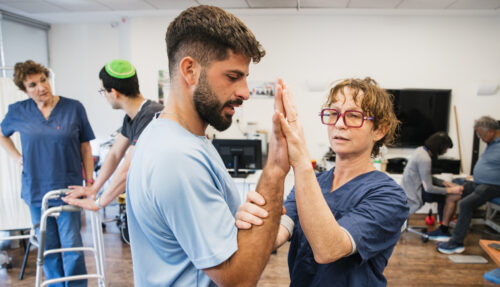Beit Halochem centres expect to welcome a large portion of the projected 20,000 permanently disabled Israeli veterans from the war this year

On October 11, reservist Itay Sagy set out on a mission with other IDF Maglan commando soldiers to fight Hamas terrorists after their brutal surprise attack on southern Israel four days earlier.
Sagy’s team had a problem with one of their vehicles. They decided to split into two groups. One stayed to fix the vehicle, and the other went ahead to a bomb shelter along the side of the road to take cover from rocket attacks.
“When we got there, eight Nukhba terrorists were waiting in an ambush. They opened fire on us from all directions. They immediately took six of us out of action, so the rest of us started fighting like crazy. I managed to kill two and then they started throwing grenades at me and one of them fell right next to me and I didn’t see it. It exploded and ripped open my neck,” Sagy said.
He told The Times of Israel what happened next in an early February interview at Tel Aviv’s Beit Halochem, one of a handful of centers around the country serving the long-term rehabilitation needs of wounded warriors.
Other Beit Halochem centres are in Haifa, Jerusalem, and Beersheba. A new one will open in late 2025 in Ashdod. Run by the Zahal Disabled Veterans Organization (ZDVO) with partial support from the Defense Ministry, these centres are the next step in a wounded veteran’s rehabilitation and often become a lifelong, supportive second home for them and their families.
Story by Renee Ghert-Zand and published 2 March 2024 in The Times of Israel.
Photo by Mark Nomdar.
